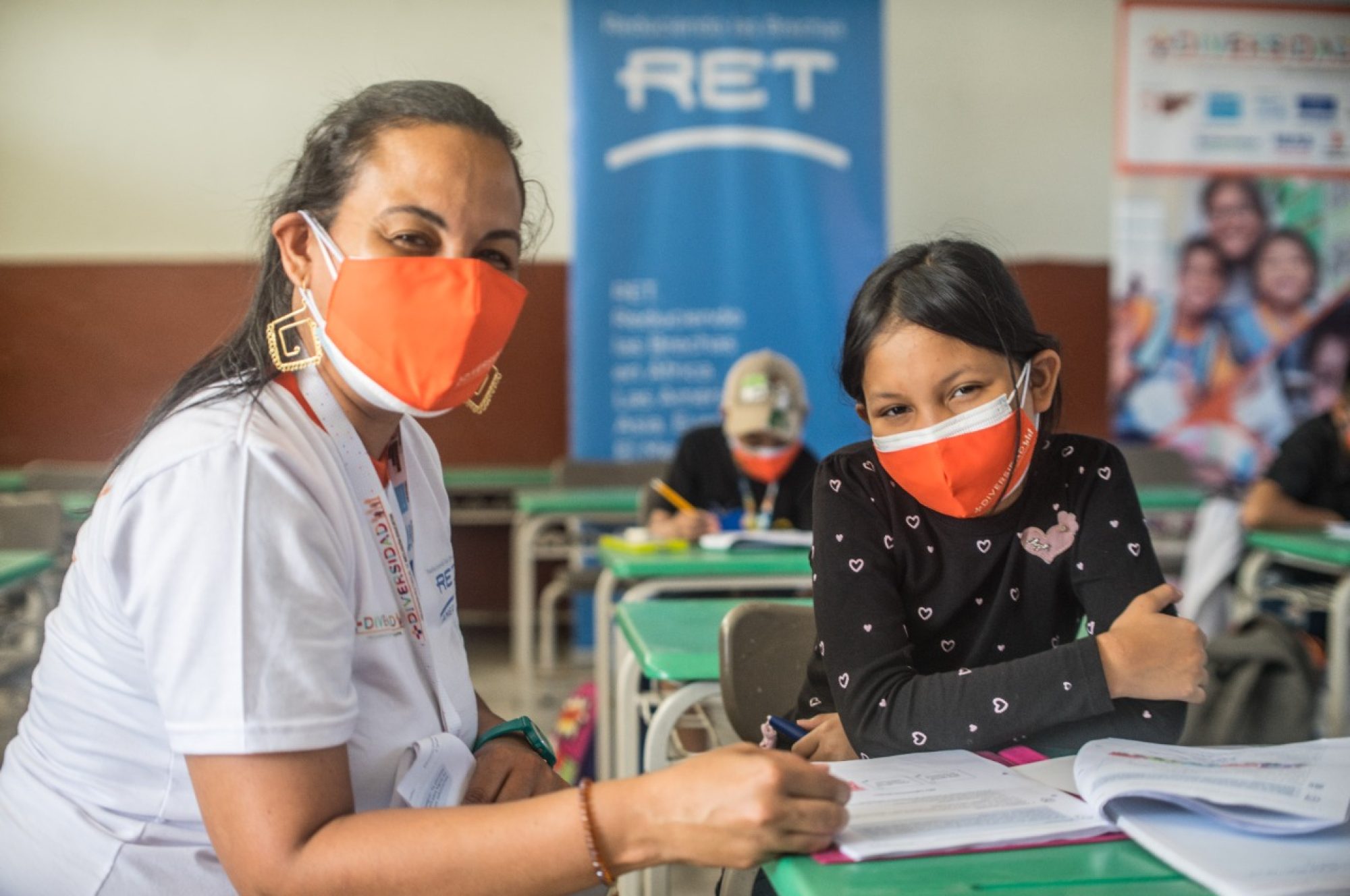RET has been designing and implementing projects on DRR since 2009. RET started in Colombia during the winter wave; since 2012 and to date, RET is working in multiple countries in the LAC region, including Colombia, Costa Rica, Ecuador and Panamá at the national and regional level, using innovative approaches and ground-breaking interventions. During the last 10 years RET has implemented more than 20 DRR-focused regional and national projects, including integral actions in other sectors such as education, protection, health and/or WASH and livelihoods, benefiting more than 30,000 participants directly, and 90,000 indirectly.
RET’s DRR approach is driven by 3 main strategic directions:
(1) Participation of children, adolescents and young people in DRR (including children with disabilities);
(2) Advocacy and institutional strengthening in DRR focused on children and youth;
(3) Development of tools and frameworks for DRR focusing on children and young people.
The DRR projects focus specifically on the needs of children, adolescents and young people, aimed at building their resilience through capacity strengthening under a rights-based approach. In addition, the DRR projects respond to early childhood and adolescents and young people’s needs and to the essentials of people with disabilities or indigenous groups. Some of RET’s DRR projects comprises of institutional capacity building and strengthening processes (Ministries of Education or Social Development) contributing to the design and/or implementation of their DRR public policies. Moreover, other projects have focused on a community level through the implementation of risk management models.
DISASTER RISK REDUCTION TOOLS:
- Increasing the capacities of governments, CSOs and other actors to work together in facilitating environmental factors conducive to CBDRM.
- Developing, reinforcing and leading strategies public policies on integrated disaster risk management and response.
- Generating and managing information and knowledge in plans and actions for the prevention, mitigation, preparation, response and recovery of risk and developing a monitoring and evaluation plans for the implementation of DRR strategies at a national and regional level.
- Promoting intra and inter-institutional networks and alliances for the application of public policies in integral disaster risk management and response.
- Strengthening the coordination mechanism for the implementation and operationalization of public policies on integrated disaster risk management and response proposed by the Ministries of Education at a regional level.
- Promoting binational horizontal cooperation processes between ministries.
- Advocate for the development and implementation of public policies for the management of risk reduction and natural hazards.
- Promoting the empowerment and the participation of children, adolescents and young people in management actions to reduce risk.
- Developing actions for the resilience of childhood and youth and guidelines for the protection and realization of the rights of children and adolescents in emergency or disaster situations.
- Developing educational-pedagogical strategies to inform, sensitize and empower adolescents and young people about risk reduction disasters.
Partners & Achievements
RET is actively engaged at the global level in the “Global Alliance for Risks Reduction and Resilience of the Education Sector” (GADRRRES). In the LAC, RET is a member of the “Regional Education Sector Group for DRR and Education in Emergencies” and has been the coordinator of the “Coalition for Children and Youth Resilience in Latin America and the Caribbean – CORELAC”. As a leader of CORELAC, the movement “Voices of Children and Youth for Resilience” has been promoted, reaching more than 6,000 young people in collaboration with UNICEF and UNDRR, Save the Children, Plan and World Vision. This initiative succeeded in incorporating the participation of young people from LAC in different regional platforms for DRR (Chile, Ecuador and Canada). The initiative led to the recognition of children’ and youth’ participation at the “World Conference on DRR” held in SENDAI in 2015; fundamentally influenced the inclusion of children and young people as “relevant actors” in the document of the SENDAI Framework for Disaster Risks Reduction 2015-2030 and led to the Zero Project Award 2020 for Innovative Practice.
Learn more about RET’s Disasters Risk Reduction regional projects.


